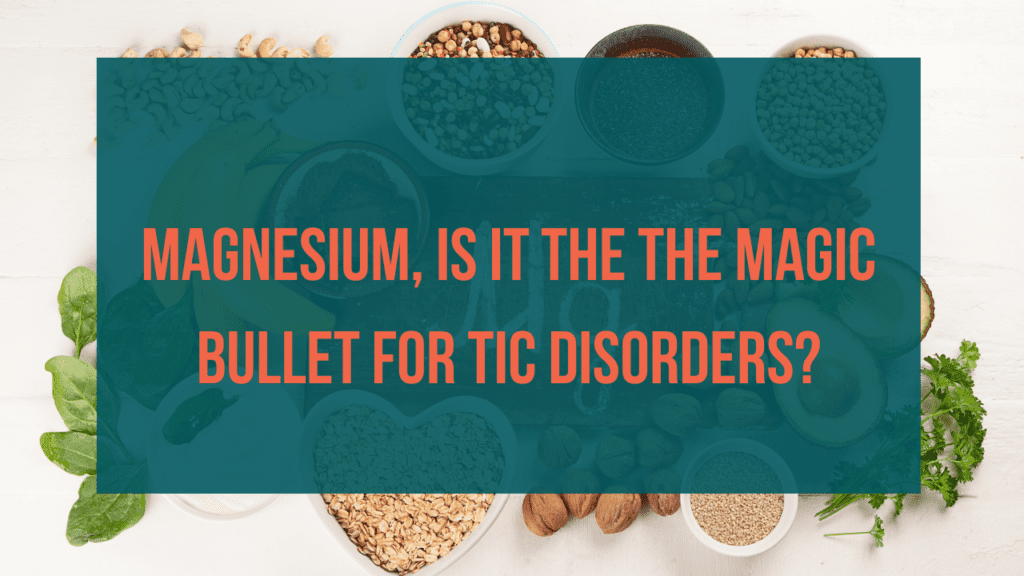The internet mentions Magnesium for tics about a billion times, but is it the magic bullet? If you are searching Dr. Google for natural approaches and you roll up on the wonders of Magnesium, here is what you need to know. Magnesium is not a cure tics. Magnesium is necessary for several things related to health, but if you are looking at natural remedies and if Magnesium is your first port of call, I have some terrible news Magnesium may not do squat when it comes to a tic disorder.
So why is Magnesium recommended in the first place? A very small study in 2008 showed some positive results. However, the sample size was so small. Magnesium is one of those things that the internet loves. Magnesium is a very safe supplement and can be found inexpensively. Magnesium will help with sleep quality if tic disorders cause you to struggle with insomnia. Magnesium does support healthy brain function and helps to regulate muscle contractions. Magnesium is excellent for muscle cramps also Magnesium may also reduce anxiety and physical symptoms such as fatigue and headaches in children. Magnesium has been shown to reduce ADHD symptoms, and 95% of the children in the study were Magnesium deficient. Magnesium is safe enough to try out, and on most things, some research supports its use. Magnesium, however, does not seem to have any magical powers.
It is important to note that up to 80% of Americans are Magnesium deficient. Magnesium is very poorly absorbed through the GI tract, especially when taken with calcium. Magnesium glycinate or taurinate are great forms of Magnesium better absorbed; chelated makes it easier to absorb. Like I said before, Magnesium will NOT result in some fantastic magic bullet cure for tics; however, if you think your child could use a little boost in magnesium supplementation, that is not out of the question. When focusing on magnesium-rich foods, consider that many of our food sources and soils have depleted this essential nutrient, and you may need a lot more. Good foods include pumpkin seeds (also high in zinc), nuts (almonds contain high amounts), spinach, oatmeal, and avocado.
Magnesium also helps with blood pressure Magenesum does have a positive effect on some people living with Tourette’s syndrome; however, for every person, Magnesium works for, there are ten who experience no change. Magnesium is often proposed as being “The magic bullet” when it comes to tic disorders Magnesium, however, falls short of the mark.
Don’t get me wrong; we need Magnesium. It is essential for life, but it may not be the fantastic magical cure you are looking for. Why? Because in most cases, the root cause of a tic disorder stems from chronic inflammation. Although tics can be exacerbated by nutrient deficiency, the underlying issue is usually an underlying infection, food/toxin sensitivity, stress, insulin dysregulation, poor gut health, or a combination of many of these factors.
So, is Magnesium the answer for your tic disorder? Maybe but don’t get your hopes up. If you are looking to try a natural approach, be sure you’ve done some research first and know what it is that you are actually trying to fix before jumping in with both feet on any remedy. Don’t let Dr. Google lead the way! I can help you get your hands on the functional lab testing you need so that we can find out more about what’s going on under the surface. Let me take care of all those overwhelming details while you focus on your child!
If you are searching for alternative and natural approaches to your child’s tic disorders make sure to grab the Tic Disorder Cheat Sheet HERE

